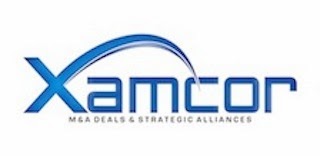A couple weeks ago, I noticed that when my 13-year old son and his friends were insulting each other, they used the term "bots." I thought this was interesting, because in our industry, we have typically considered bots to be a good thing -as in you can deploy "a bot" to automate a process. In fact, the rapidly growing billion-dollar RPA industry has been built on bots.
I asked, "Why do you call each other bots as a put down?"
"Because in video games when you play against the computer, even the highest level is dumber than playing against the worst real person," my son answered . "You're playing against a bunch of 'bots.'"
That made perfect sense to me. In fact, a few months back, I realized that despite many people thinking that robots are intelligent, the way they have been deployed in RPA doesn't really manifest that. Sure, RPA 'bots' can copy repetitive human tasks, but when it comes to anything outside of that, well that just hasn't been happening. And it seemed to me that the promise of RPA (especially as it has risen in parallel with AI) is that is should be more intelligent.
Well, this seems to be on the minds of RPA vendors as well. In a recent interview I did with Chad Gailey, VP, channels and ISV partners, Americas, for RPA market leader Blue Prism, he said, "RPA is today, but it’s really simple processing. The future is leveraging machine learning and computer algorithms to mimic and behave in a human manner. We want to infuse vision from AI and cognitive learning platforms into our RPA software to move to our next generation."
Then, a couple weeks later, we found ourselves interviewing Kashif Mahbub, VP, product marketing and global head, RPA for another market leader, Automation Anywhere. He was briefing us on Automation Anywhere Enterprise A2019, the ISV's next-generation RPA platform. It includes, "infused AI skills and capabilities throughout the platform."
So, RPA is getting more intelligent. Interestingly, document capture has already embraced AI. As their ability to capture data from structured documents became commoditized, document capture vendors introduced AI to help them deal with capture from a wider variety for forms. For some RPA vendors, capture has actually been their first step towards "cognitive automation." Automation Anywhere, for example, markets a product called "IQ Bot" that was presented to me at AIIM as a document capture platform.
So, it seems that as RPA moves toward intelligent automation, there are even more synergies with capture that can be realized. In addition, workflow vendors like Hyland are also looking to leverage AI to automate more processes within their platform, which should definitely create some more crossover and possible synergies with RPA.
We know one thing: that RPA leaders like Blue Prism, Automation Anywhere, and UiPath certainly have a lot of funding to invest in AI technology if they choose to, and it sounds like they are choosing to. There seems to be a bit of an intelligent automation arms race beginning - as part of the larger Digital Transformation market as whole. And as AI more deeply enters into this fray, maybe the idea of "dumb bots" will become archaic. In fact, there is already a well known story about an AI program that beat a champion of the Chinese board game "go." Wait 'til Madden gets ahold of that technology. Thirteen-year-olds will have to most certainly adjust their lexicons and come up with a new insult for dumb. Perhaps something like "paper user," will be in vogue next.
I asked, "Why do you call each other bots as a put down?"
"Because in video games when you play against the computer, even the highest level is dumber than playing against the worst real person," my son answered . "You're playing against a bunch of 'bots.'"
That made perfect sense to me. In fact, a few months back, I realized that despite many people thinking that robots are intelligent, the way they have been deployed in RPA doesn't really manifest that. Sure, RPA 'bots' can copy repetitive human tasks, but when it comes to anything outside of that, well that just hasn't been happening. And it seemed to me that the promise of RPA (especially as it has risen in parallel with AI) is that is should be more intelligent.
Well, this seems to be on the minds of RPA vendors as well. In a recent interview I did with Chad Gailey, VP, channels and ISV partners, Americas, for RPA market leader Blue Prism, he said, "RPA is today, but it’s really simple processing. The future is leveraging machine learning and computer algorithms to mimic and behave in a human manner. We want to infuse vision from AI and cognitive learning platforms into our RPA software to move to our next generation."
Then, a couple weeks later, we found ourselves interviewing Kashif Mahbub, VP, product marketing and global head, RPA for another market leader, Automation Anywhere. He was briefing us on Automation Anywhere Enterprise A2019, the ISV's next-generation RPA platform. It includes, "infused AI skills and capabilities throughout the platform."
So, RPA is getting more intelligent. Interestingly, document capture has already embraced AI. As their ability to capture data from structured documents became commoditized, document capture vendors introduced AI to help them deal with capture from a wider variety for forms. For some RPA vendors, capture has actually been their first step towards "cognitive automation." Automation Anywhere, for example, markets a product called "IQ Bot" that was presented to me at AIIM as a document capture platform.
So, it seems that as RPA moves toward intelligent automation, there are even more synergies with capture that can be realized. In addition, workflow vendors like Hyland are also looking to leverage AI to automate more processes within their platform, which should definitely create some more crossover and possible synergies with RPA.
We know one thing: that RPA leaders like Blue Prism, Automation Anywhere, and UiPath certainly have a lot of funding to invest in AI technology if they choose to, and it sounds like they are choosing to. There seems to be a bit of an intelligent automation arms race beginning - as part of the larger Digital Transformation market as whole. And as AI more deeply enters into this fray, maybe the idea of "dumb bots" will become archaic. In fact, there is already a well known story about an AI program that beat a champion of the Chinese board game "go." Wait 'til Madden gets ahold of that technology. Thirteen-year-olds will have to most certainly adjust their lexicons and come up with a new insult for dumb. Perhaps something like "paper user," will be in vogue next.



